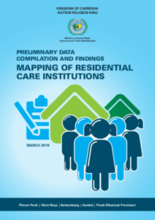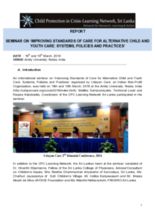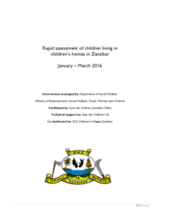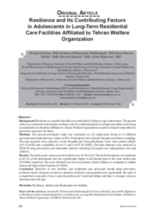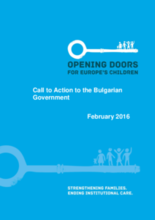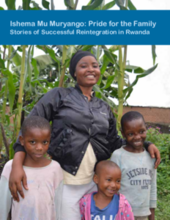Displaying 1001 - 1010 of 1510
Cambodia's Ministry of Social Affairs, Veterans and Youth Rehabilitation (MoSVY) conducted a mapping exercise to address a lack of information on the number of residential facilities providing care for children.
In this report, Lumos welcomes actions taken by the Republic of Moldova to prevent child abuse and exploitation during the period between 2011-2015. Lumos further notes c
This document reports on Udayan Care's international seminar on ‘Improving Standards of Care for Alternative Child and Youth Care: Systems, Policies and Practices’
Zanzibar’s Department of Social Welfare - a department within the Ministry of Empowerment, Social Welfare, Youth, Women and Children - along with Save the Children UK and SOS Children’s Villages undertook a rapid assessment of residential care institutions in Zanzibar in an effort to provide preliminary information to assist the Department of Social Welfare in licensing of all children’s homes in Zanzibar.
This article primarily discusses a study that was conducted to determine resilience and contributing factors in high-risk adolescents living in residential care facilities affiliated to Tehran Welfare Organization.
This brief is part of the Opening Doors for Europe’s Children campaign and is based on the proposal made to the Bulgarian Government by the Coalition ‘Childhood 2025’ to update the structure and content of the updated Action Plan.
This report highlights stories of some children, youth and families who have been assisted under the Ishema Mu Muryango program. While each of their stories is unique, all highlight some common themes about institutionalization and child abandonment in Rwanda.
A new video describes a Mailman School-led study to assess the size of the problem. Interspersed with footage of children in informal settlements and orphanages, researchers and officials describe the growth of residential care facilities in Cambodia, many which are operated or funded by foreign charities, including religious groups.
In this video Child's i Foundation works with Care 4 Kids, an orphanage for 53 children, which wants to reintegrate children back into families but had challenges convincing the families that they could provide better care. Child's i Foundation organised an open day for families and invited parents who had taken their children back from Rafiki to explain the benefits of children growing up in families.
This report provides an evaluation of the Keeping and Finding Families Project, a pilot foster care project in Tajikistan.

